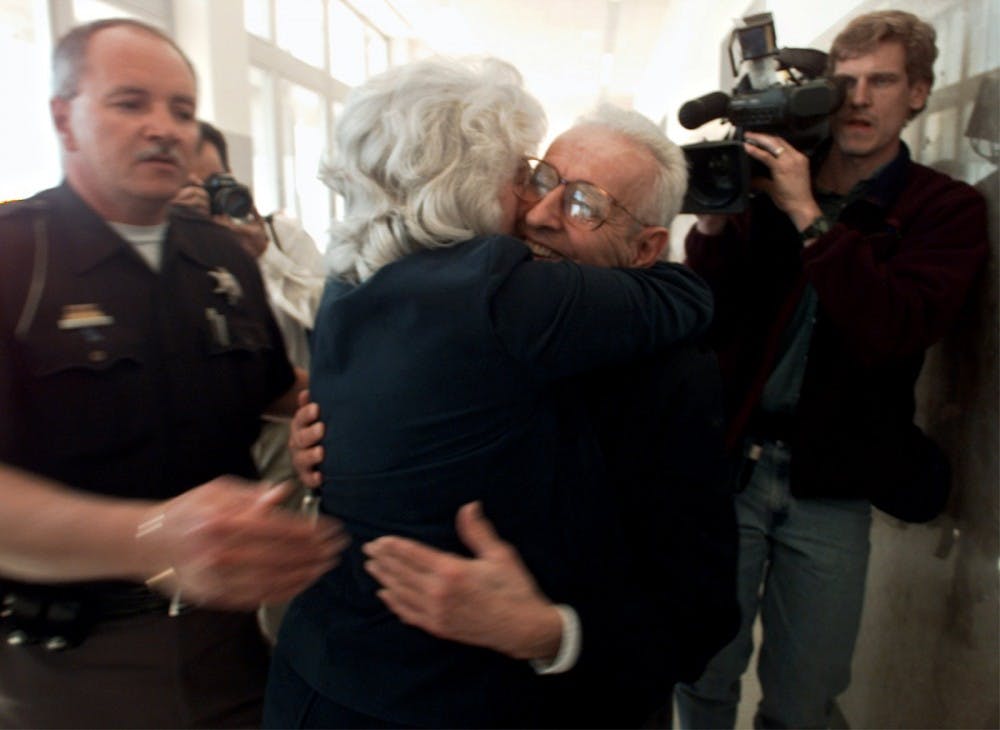I never considered the moral or societal implications of suicide until recently in my Human Event course, where my classmates and I were required to read Hume's "On Suicide." Everyone thinks about suicide on a personal level. Very few can say that they have never considered suicide or contemplated what would happen if they decided to take their own life. However, considering it on a personal level, only reflecting on the immediate consequences, is not the same as recognizing what suicide is to society.
Some believe it is a crime against humanity as a whole. Some believe it is a crime against God. But is it really for others to decide? Suicide is a means to exercise one’s free will, not a means to defy society’s expectations. Suicide, under specific circumstances, should be an accepted route to take.
Many states have considered legalizing physician-assisted suicide, in which a doctor issues a lethal dose of medication to a patient upon their request. Unfortunately, it is not a black and white issue; there is a great deal of debate as to what conditions would be required to grant assisted suicide.
If patients are ill or suffering from crippling disabilities, they should have the right to end their lives in a safe and peaceful setting. This is where the law should come in.
As of now, only five states in the U.S. have legalized physician-assisted suicide. According to the Patients Rights Council, state laws regarding assisted suicide differ, but almost all of them condemn assisting suicide as an act of manslaughter.
In 1990, Dr. Jack Kevorkian assisted in the suicide of an Alzheimer’s patient, Janet Adkins, who was previously a member of an organization promoting voluntary euthanasia, according to Bio. After being diagnosed with Alzheimer’s disease, Adkins found a doctor willing to help. Kevorkian provided the IV, but Adkins administered the lethal dose of painkillers and poison herself. Though the charges were later dropped, Kevorkian was initially charged with Adkins’s murder.
There are instances where the line is blurred, however. For example, many would argue that there are reasons other than physical ailments to consider suicide such as depression and other mental conditions. This is where free will comes in. These individuals have the right to end their lives, but under what circumstances would it be acceptable for us to help? This is a question that can not generate a singular answer. On the other hand, a degenerative disease or a terminal illness should warrant assistance; these people are suffering from something irreversible.
In the end, it should be up to the individual to end his or her own life, and those who assist should be exempt from consequences at the hand of the law, under certain circumstances. Making physician-assisted suicide legal by federal law would provide those seeking an end to their pain and suffering with a peaceful and comfortable death, and in the end, would improve the quality of life for numerous people.
Way back in 1783, Hume hit the nail on the head. Suicide is a matter of free will. The government’s approval of physician-assisted suicide could lead to society’s acceptance of this choice, and the role it plays in people’s lives.
Related Link:
Right-to-die groups use clients for self-promotion
Reach the columnist at ghirneis@asu.edu or follow @ghirneise2 on Twitter.
Editor’s note: The opinions presented in this column are the author’s and do not imply any endorsement from The State Press or its editors.
Want to join the conversation? Send an email to opiniondesk.statepress@gmail.com. Keep letters under 300 words and be sure to include your university affiliation. Anonymity will not be granted.
Like The State Press on Facebook and follow @statepress on Twitter.




